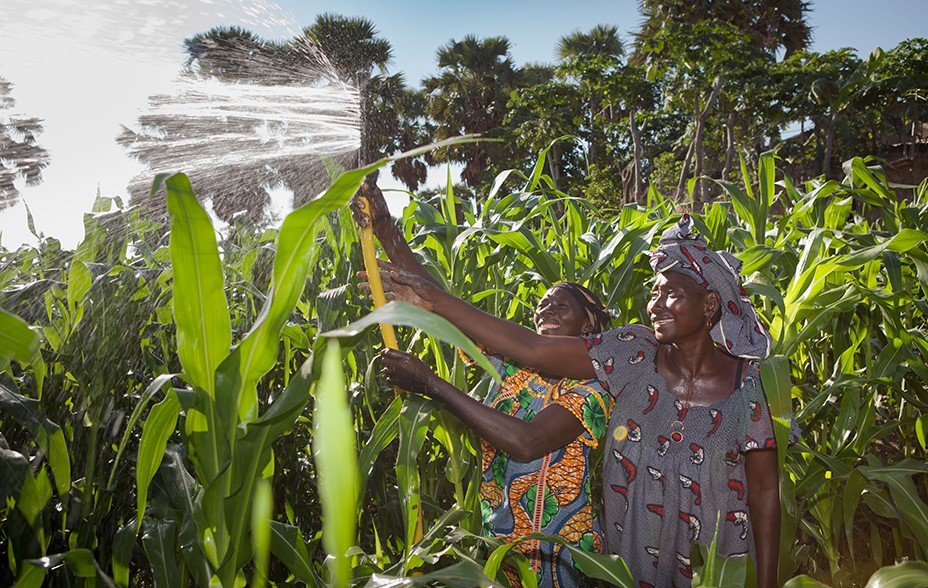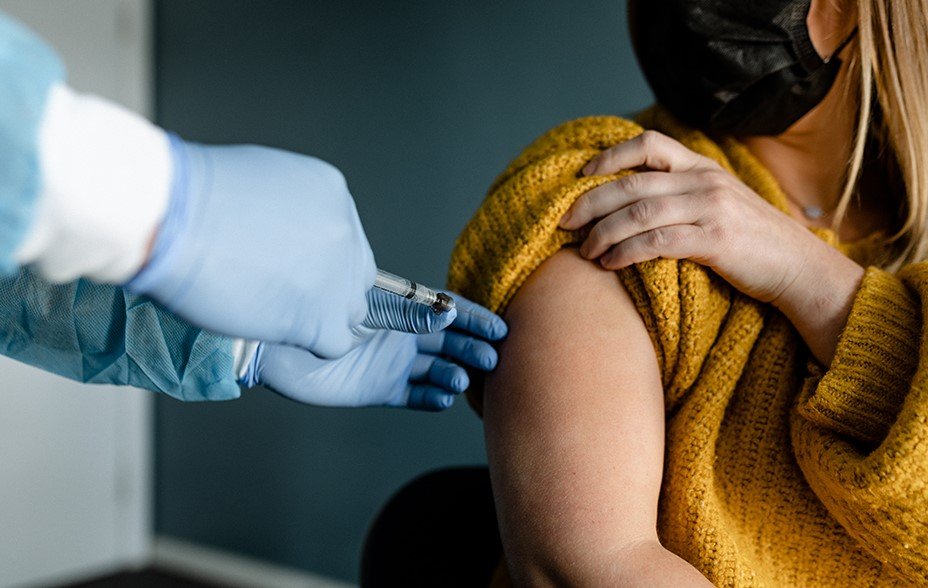Baillie Gifford’s Health Innovation team invests in companies with the potential to deliver substantial improvements to human health and healthcare systems. Our objective is to generate index-beating attractive long-term returns for our clients. We hope that by doing so we can also accelerate the healthcare revolution.

The value of an investment, and any income from it, can fall as well as rise and investors may not get back the amount invested.
Some of our investments have already had demonstrable impact. They include Moderna, the creator of the Spikevax Covid-19 vaccine, and Illumina, whose DNA-sequencing machines delivered the genetic code that made it possible. And the promise of their and others’ efforts to tackle cancer and a myriad of other ailments should alleviate much suffering in the decades to come.
We recognise, however, that our investment process must continually evolve. In particular, to think more deeply about how the concepts of impact and ESG (environmental, social and governance) come into play.
In July 2021, Maria Souza joined Baillie Gifford and our team as an impact and investment analyst. She came with 18 years of experience as an environmental scientist, senior biologist and project manager.
Her last role was at the United Nations Children’s Fund (UNICEF) in New York. Among many initiatives there she helped manage and monitor two Africa-focused HIV/AIDS projects and an internal effort to improve the organisation’s information management processes.
Prior to that, she was based in Brazil, where she evaluated the impact building hydropower and other energy facilities would have in the Amazon rainforest and proposed mitigating measures.
In the following short interview, we introduce the work Maria will be leading, aiming to expand the social and environmental impact of the companies in which we invest.

There is, clearly, a disconnect between what civil society and the investment management industry perceives as impact. How do you combine your experience and skills in impact projects with your new role in investments?
While my research over the past two decades centred on ecological microcosms, my findings were applicable to complex systems, generally. I have also applied scientific knowledge to study and mitigate human-made impact in the Brazilian Amazon rainforest. And for the past six years, I worked in both the Health, and the Water, Sanitation and Hygiene programmes at UNICEF. These varied experiences have one common element: the systems I was trying to study, protect and improve were highly complex. Interestingly, this doesn’t necessarily mean they were difficult to handle. I learned to embrace complexity with optimism and work with it (not against it and not despite it). One of the most exciting things about understanding a complex system is that it offers chances to find leverage points where exerting influence leads to disproportionate material results.
I think a complex system view on the cause and measurement of impact has significant utility in sustainability, ESG (environmental, social and governance) and impact investing. For example, for the Health Innovation strategy, it stands to reason that we care about contributing to resilient health systems at local, regional and global levels. Civil society also wants the same outcome. The time horizon required for this type of work does not lend itself to short-term metrics, nor can these goals be achieved through ‘box-ticking’ a simple ESG matrix. A resilient system is a complex property. And this approach may be the way to bridge what civil society and investors can perceive as impact. I believe that health sector investors and companies can build better synergies with governments, organisations and other stakeholders to advance the health agenda at all levels and help sustain the desired health outcomes that they have in common.
What are your thoughts on how impact work can influence investment returns?
Our new impact strategy is guided by the hypothesis that to increase the success of companies today and in the future, they need to improve their ability to effect greater positive impact in the world. Those that do, can increase their access to funding, keep loyal customers, increase their client base and attract gifted professionals, while also retaining them for longer periods. At Baillie Gifford, we are long-term investors. Understanding impact as a key driver for a company’s success therefore improves our understanding of the long-term investment case and our forward-looking theories for each company. Those driving material societal and environmental improvement, and therefore positive impact, will be the long-term winners.

What is the type of support you can offer to companies?
As a biologist, most of my career has been focused on developing frameworks to better assess and understand social and ecological impacts of human activity on the natural environment. There are many lessons nature teaches us about change in complex systems, but the ones I focus on are: effecting and sustaining change, disrupting or building resilience (depending on one’s aims), recognising catastrophic shifts and optimising knowledge transfer. Read that again in the context of analysing companies and you will see that these two worlds are not a million miles apart.
When one begins a career at the United Nations, the UN Charter calls on us to uphold the highest levels of efficiency, competence and integrity. This commitment is reflected in the Oath of Office taken when you become a UN staff member. I am captivated by the fact that I have been encouraged daily to keep the same UN principles while working as an analyst at Baillie Gifford.
Some anecdotal evidence? Since I have arrived at Baillie Gifford, I have shared and discussed a range of big ideas with my team, including: drugs; vaccines; diagnostics manufacture in Africa; global innovation syllabuses for children; work with universities and research centres in far-flung corners of the world; and my desire to help aid organisations work themselves out of business (as they are supposed to do) by investing in emerging markets. These concepts were not met with cynicism nor powerlessness. Instead, these ideas, and potential impact projects with companies, were met with interest, disposition and optimism, no matter how big they are, or how improbable they may seem at this time.
I look forward to developing these ideas further with my colleagues and working with companies to help structure projects for greater societal impact.
How will the investment process evolve now that you have joined the team?
I have a clear task at hand: to expand and develop the thinking about social and environmental impact as a direct result of the investment work of the Health Innovation strategy. I am leading the establishment of a new impact assessment framework which structures our long-term vision about impact and investing. As a result of this main task, a ‘Health Innovation Impact Strategy’ was discussed and then written. It is now under revision and will be published in the coming weeks. A baseline database about impact and ESG factors of the companies in the portfolio is also underway. These will be used to guide the work of existing companies in the portfolio, our communication with clients, and our alignment with like-minded investors.
With this work, we will also attempt to create value for the investment process, exploring ways to use impact to support the pre-investment phase, during sourcing of ideas, research and relationship building. We aim to strengthen the investment process using an interdisciplinary approach and via increased incorporation of sustainability factors. The core of this work was assessing the strategy’s ability to meet ‘Article 8’ classification under the Sustainable Finance Disclosure Regulation – SFDR (EU Regulation 2019/2088 of 27 November 2019). This was one of my first tasks within the team, to collaborate with colleagues in the alignment of the investment objective and investment policy of Health Innovation with the requirements of the SFDR. This was successfully achieved last month!
Critical to this evolution is an appropriate time horizon. ESG problems are not easily solved, and so anyone focused on the next 12 months might have little scope to consider them. Health Innovation’s focus is on the next five to ten years (and beyond), so the companies in which we invest must be acutely aware of these problems and be willing to work to address them. Often, we see companies beginning to consider ESG factors only after IPO or after a certain maturity level. Health Innovation aims to invest in companies that have the potential to bring substantial (not incremental) improvements to human health and healthcare systems. To achieve these goals, we think it is key that their ESG and impact work start as early as possible.
Once we have identified the companies that we think meet these criteria, the next question is ‘how can we help’? We are supportive shareholders, focused on the long-term potential of companies. It is therefore our duty to support them on this journey.
Our understanding of impact will allow us to be better investors. This could be valuable for strengthening our relationships with companies and helping them to improve their businesses. As everyone is trying to navigate the sustainability landscape, companies might be very appreciative of that. On that front, we are already doing well on the governance side, and it is all about broadening the scope. That is what we have set out to do, now. I am looking forward to seeing these hopes being turned into reality – and setting the standard for responsible socially-minded investing going forward.

